If the muscles are tense
The muscles in my neck and shoulders tense up often. The painful tension emerge when we claim muscles, for example, by a certain posture over a prolonged period of time.
Table of contents
How does it work the muscles?
With our muscles we move and hold the body upright. Some of them we can consciously control – for example, on the limbs, face and torso. The muscles of the internal organs can, however, not arbitrarily – taxes; and with good reason. We would prefer to forget, the heart muscle tensing and relaxing, would we be in in a few minutes of heart problems. It would not, moreover, simply not possible, the body muscles, blood circulation, metabolism, sexual function and digestion necessary, willingly taxes.
The fine structure of the muscle is composed of Actin and Myosin, which interact with each other. When a muscle contracts, the opposing structures together, the muscle shortens and becomes thicker. When the muscle relaxes, move apart Actin and Myosin.
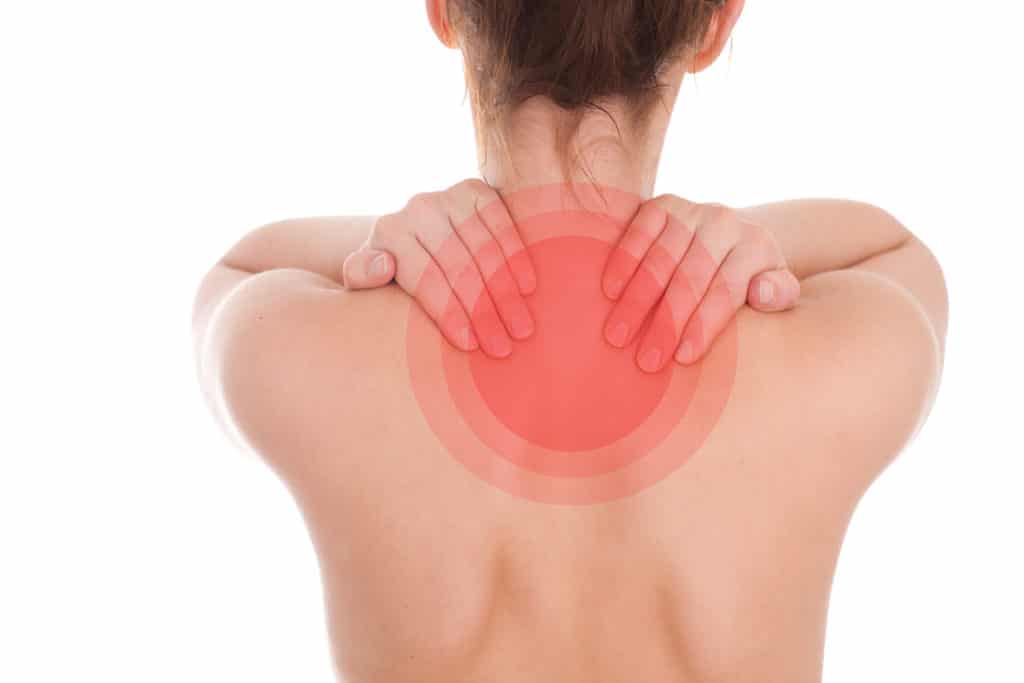
The Central nervous system
Our Central nervous system in the brain and in the spinal cord ensures that the muscles relax or tense. Nerve forward the signals from the Central nervous system to the muscles. These signals are electrical impulses that enable the particular muscle in a basic tension. With the rhythm of the nerve signals, the tension of the muscles changes.
Causes of tight muscles
The causes of muscle tension, depending on the muscle, will be different. In the case of a strained neck, it is often due to an inflexible Position over a longer period of time, for example, through work on the Laptop. If we are in the sleep incorrectly, this results in tension as well to muscle.
Psychological Causes
Often tense up the muscles due to mental stress. Anxiety and Stress are in the course of Evolution as a reaction to the danger of resulting States. They affect the brain signals, as well as pain or incorrect posture. In case of strong anxiety and Stress, tense up the muscles. When we feel safe, relax.
When we are emotionally tense, that is the response to a threat, for example, by a predator, as our ancestors have experienced. In order to escape this threat, prepares the brain to the body in a performance mode, and increases the tension in the muscles. However, muscle tension does not stop also, if we react physically, as we would have done our hunter – gatherer past. Due to the tension the muscle is not supplied to tissues with less blood, the products of metabolism from the flow and presses on the pain receptors: It hurts.
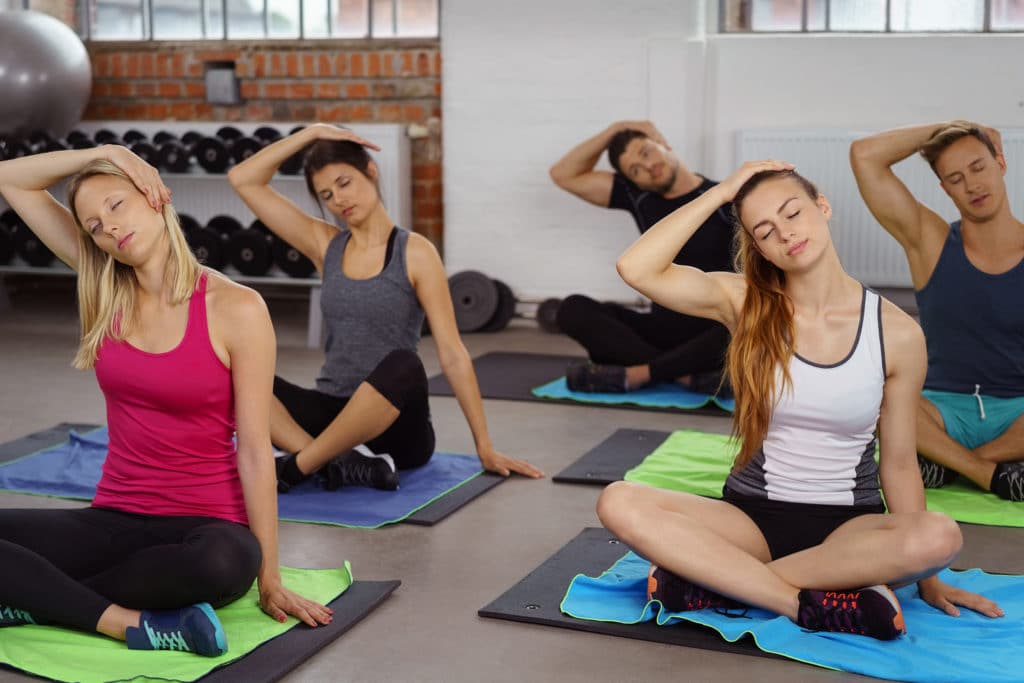
Injuries and pain
Pain is not only a consequence of the muscle tension, but can also be the cause. When we feel pain, tense the muscles of the corresponding part of the body automatically and thus protect the body against further pain and injury. Optimally, this response is not – is; like much in Evolution. The muscles respond to the vertebral column with blockages on discomfort in the back. The muscles tense and we assume a reflex, a posture to protect the sore part of the body. But this attitude leads to other muscles tense, and the tension from the stretching pain.
Typical causes for tight muscles
The number one cause for muscle tension in humans today is lack of exercise, be it working on Computer, whether it is long trips with the car, whether it be through television. Even with a lack of exercise as a result of being bedridden for sick and old people muscle tension are guaranteed. Lack of exercise is often accompanied by a one-sided strain, if we sit hunched over in the Desk chair, or heavy bags in the Hand drag. The less the entire Muscular system is trained, the faster you tense the muscles.
The wrong mattress
Often a wrong mattress in the bed tension is the cause for muscle. If the mattress is too soft, tighten the muscles on your body permanently, so we can lie comfortably. A too hard mattress can lead to tensions, because it forces the body into a certain posture. It is the same Problem as with the work in front of the screen with a curved back.
Sleeping on a wrong mattress can lead to long-term complaints. We sleep a third of our time. If we now in this whole Phase the body is in a faulty Position, overload, this, of necessity, the muscles. The muscles do not get enough oxygen and harden. An ergonomic mattress that is adapted to the body, we can avoid these problems.
The right mattress
In the case of a good mattress, you can distribute the body weight evenly on the surface. So the weight may not be in the side solely on shoulder and hip. Built-in comfort zones to support the body and relieve him.
The wrong Position
If you sleep on your stomach, do not overload the back of the neck; if you sleep on your bent forearm, overload your shoulders.
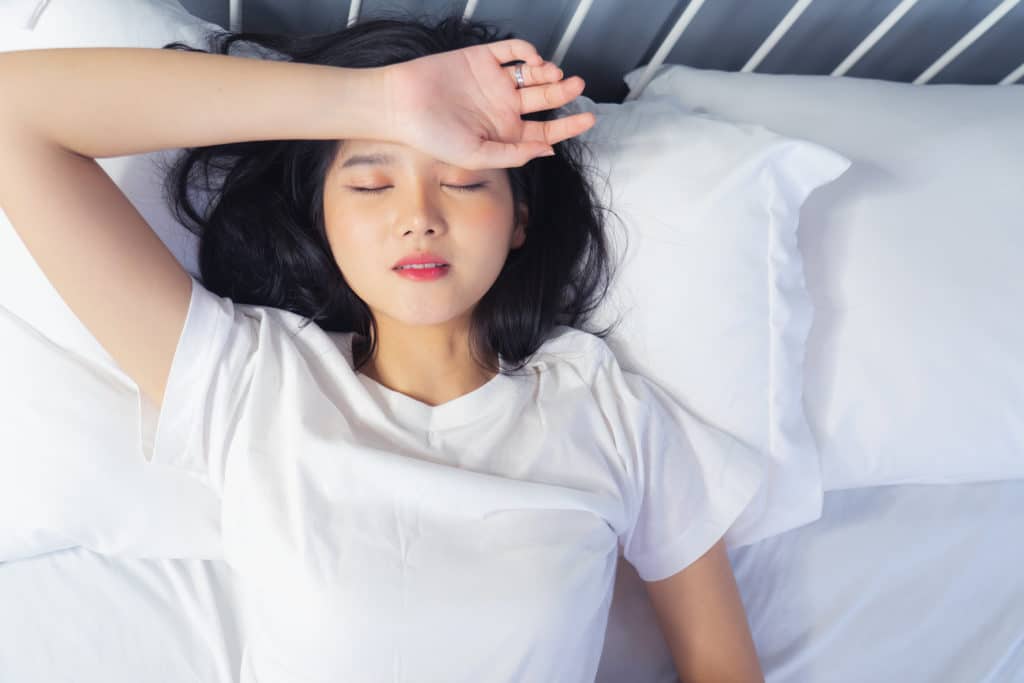
Gnashing of teeth
People who clench your teeth together, do not just RUB this and damage your dentures. You make sure that the rows of teeth do not match and the temporomandibular joint in the wrong position. The jaw muscles tense up. Here special, from the specialists of custom help splints bite.
A Civilization Is A Problem
Tension in the muscles arose in the Evolution from the Reflex “Hit or run” in the face of danger in the hunt, or the confrontation with animals. On the muscle tension of the fast movement. Then they relaxed again. This Fight or Flee away now, remains the voltage. Sitting at a Desk does not correspond to the evolutionarily functions of our body. Therefore, we should take breaks at work, in which we move, for example, the staircase and descend to take a train station by foot or in the office Gym.
Symptoms
A typical Symptom of muscle tension headaches. There is even a term: tension-type headaches. Here, the Strain may be either a cause or an accompanying symptom. For example, Stress triggers, often a Strain of the neck muscles and headache at the same time.
Tense muscles have points that are particularly sensitive to stimuli. Of these rays, the pain in the area. The pain is in a Strain are dull or pulling. For example, the pain of strained muscles in the neck area, run over the shoulders to the middle of the spine, but it can also radiate to the arms and legs. The area where it hurts, feels hard and numb. Of muscle tension as a lump under the skin feel. Other symptoms that occur but always, disorders of blood circulation in the hands and feet, as well as bouts of dizziness.
Caution Pain Memory
Some of the muscle tension go on for longer periods, be it by disease, either because their cause remains. This is particularly true for incorrect sleeping positions, or permanent Seats. Pain is an important Signal of the body. He not only shows the Problem, but points to the cure: With a painful foot ends, we are more careful and protect him.
The body also has a pain memory. When pain stimuli are in one place long, accustomed the brain to the pulse, and launches it, without the specific trigger. In a Strain that can be unpleasant: it becomes chronic. The longer the pain lasts, the worse he is, although his cause has not changed. The nervous system always responds in a more sensitive.
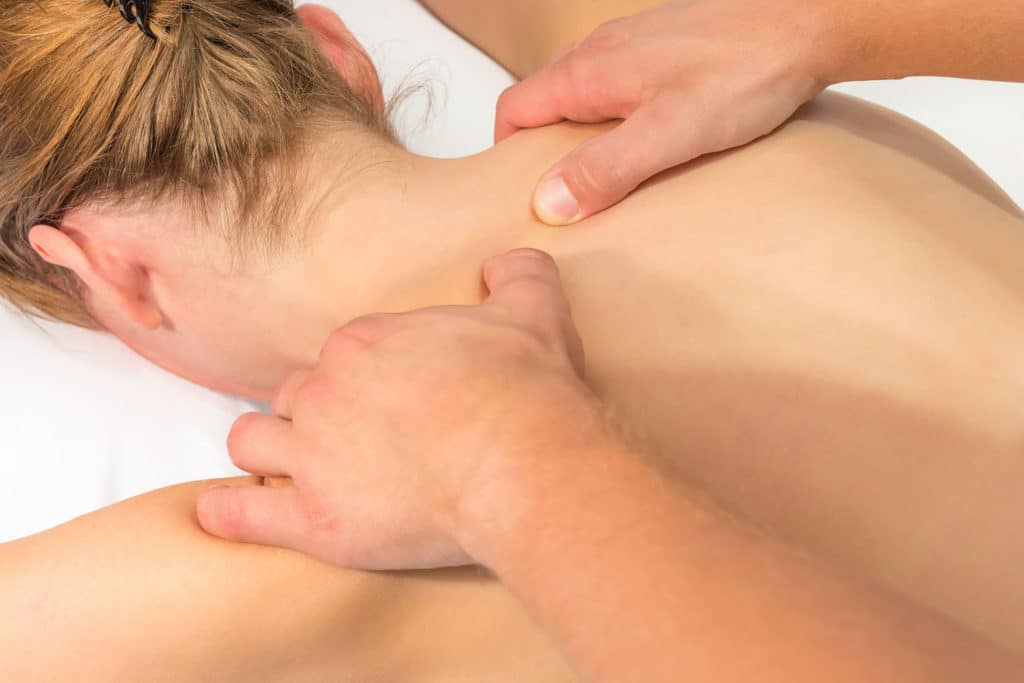
Which muscles are most affected?
At constant Stress and strain on three muscles: The shoulder blade lifter, the trapezius muscle and the upper bones of the muscle to respond. The shoulder blade lifter is connected to the nerves in the back of the head. Therefore, tension on the shoulder blade, headaches – one of the most common stress symptoms. Almost every Second person is affected at least once in your life. The pain can also be a of the neck muscles, which can be by means of an electromyography.
What to do about tension?
In the case of severe pain you need physical therapy. Against tight muscles, you can do well even if the pain is still too large. In the case of less serious problems, you can schedule exercise into the daily routine, it is best to practice regularly, but moderately sports, spread over the whole week, and not only occasionally but intensive. By irregular, high-performance sport they provide, rather, for a new muscle tension, or that the existing complaints worsen.
Relaxation in the office
You can incorporate relaxation training in the office work, to solve existing tensions, or to make them in the first place.
- Keep the head straight. It is only once unusual, but relaxed the back of the neck.
- You Take Breaks. If you work long hours at the Computer, take per hour, at least five to ten minutes, in which they move, the neck rotate, the arms and legs to shake, if possible, climb stairs, or to the bakery.
- Do not be put under pressure, either from the task itself, nor of the supervisor.
- You go to colleagues instead of them to send Mails.
- They provide a Desk, a countertop, and Laptop at eye level. Then, the back remains straight.
- Pull up in between the shoulders and let them fall again.
- You put a regular heating pad or a hot water bottle in the back of the neck, which promotes blood circulation and relaxes the muscles.
- You Do Strength Training – if you are already suffering from tension, specifically for these muscles.
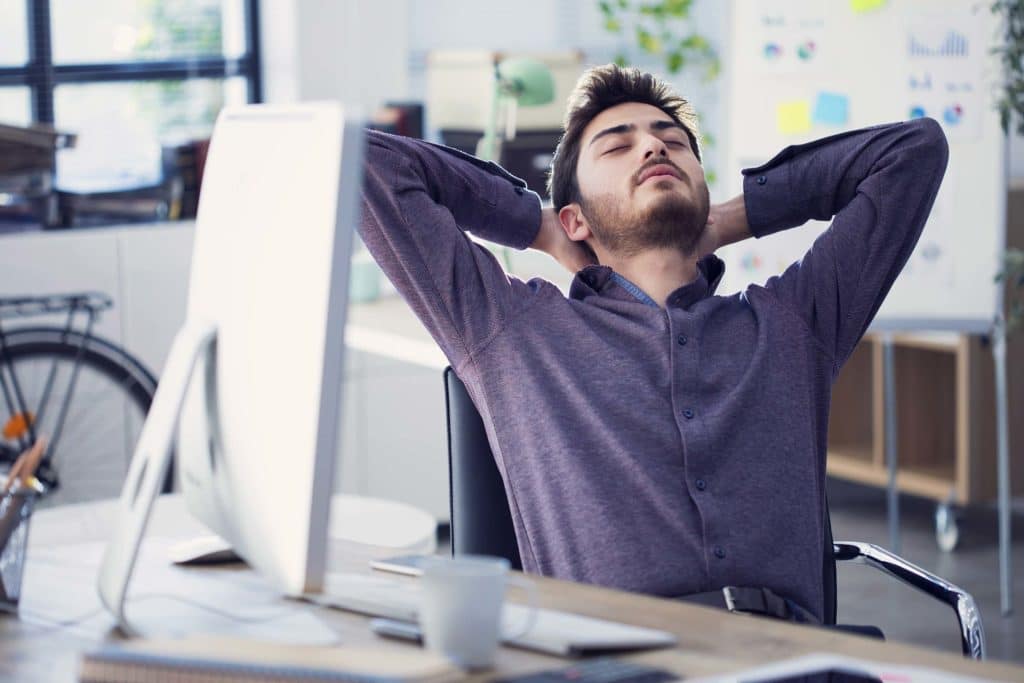
Jogging, Swimming, Canoeing and Dancing
Jogging promotes blood circulation and relaxation of the neck muscles. Loose you run, without a strong effort. Swimming, muscle tension reduces in the neck, back and shoulders very well. The muscles, at the same time, but also spared, because quick movements under the water are hardly possible. Canoeing is the best compensation for working on the computer. The smooth movements with the Paddle to claim the muscles in the arms, shoulders, chest and back equally. For Dancing, a straight body posture of elementary – is; ideally suited to relieve tension prevent. You raise your head, stretch the neck and the whole body.
Massage
Massages can loosen the existing tension. Also, the application of heat assists the relaxation of the tense body.
Further methods for the treatment and prevention of
- Kneipp cure with hot and cold showers provide a good blood circulation.
- Meditation techniques such as Progressive muscle relaxation release Stress.
- Ergonomic chairs with a spring back to relieve the back.
- Yoga also gives you great blood flow to the muscles.
(Dr. Utz Anhalt)